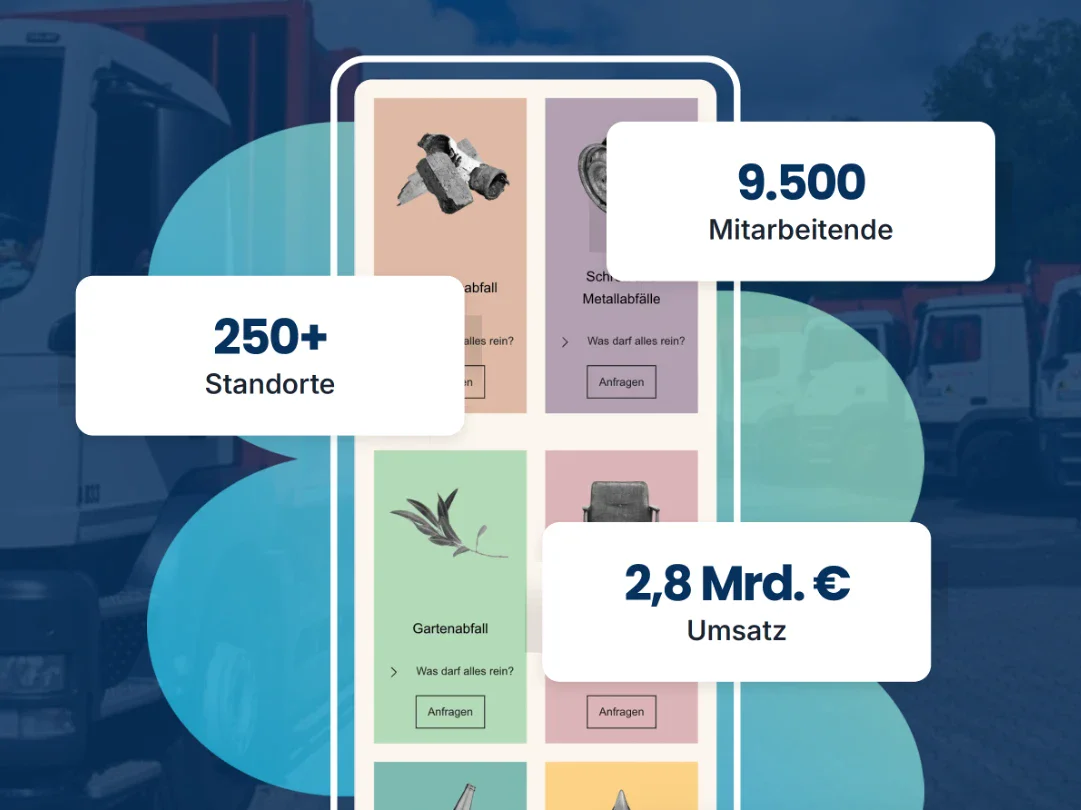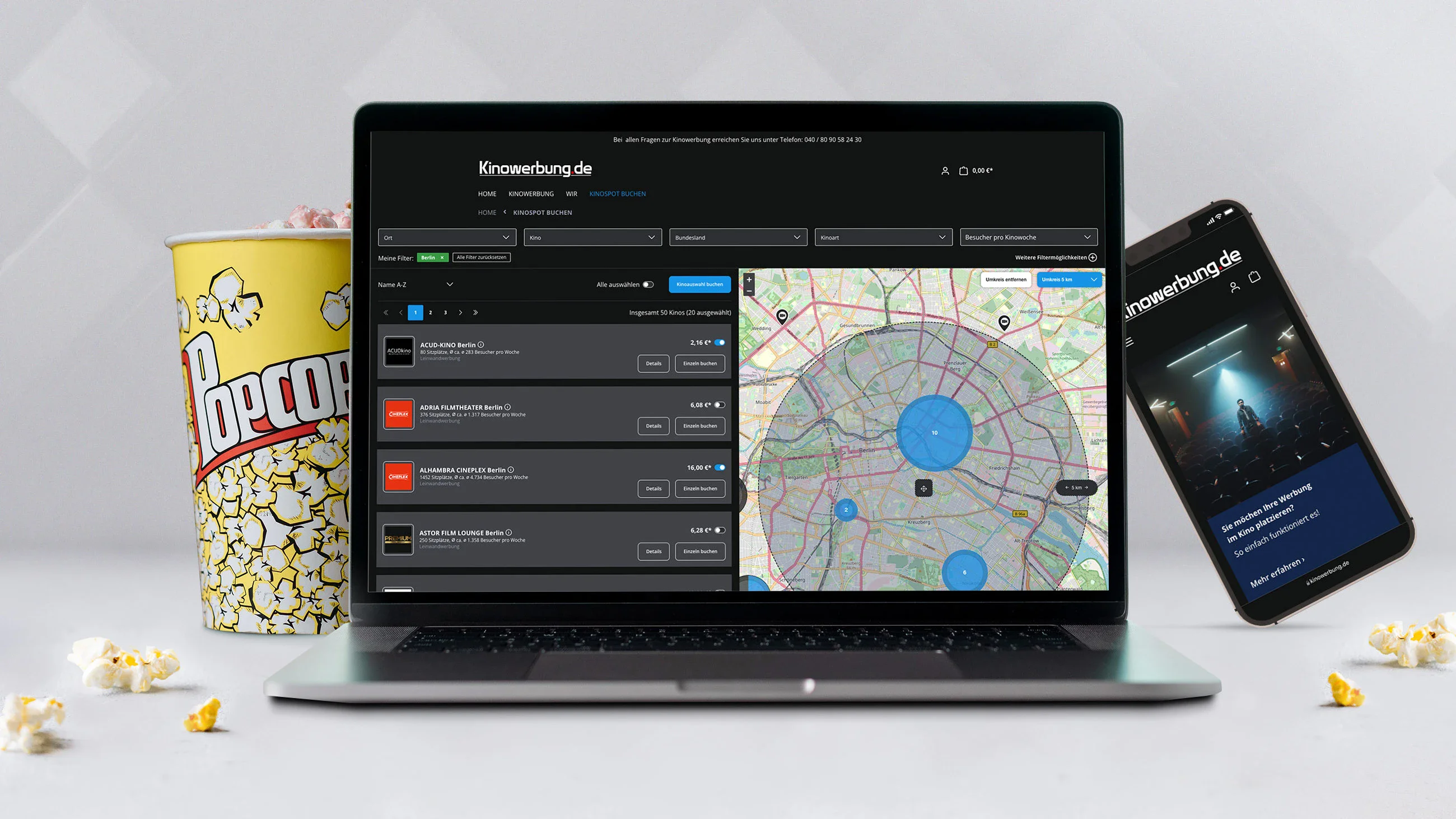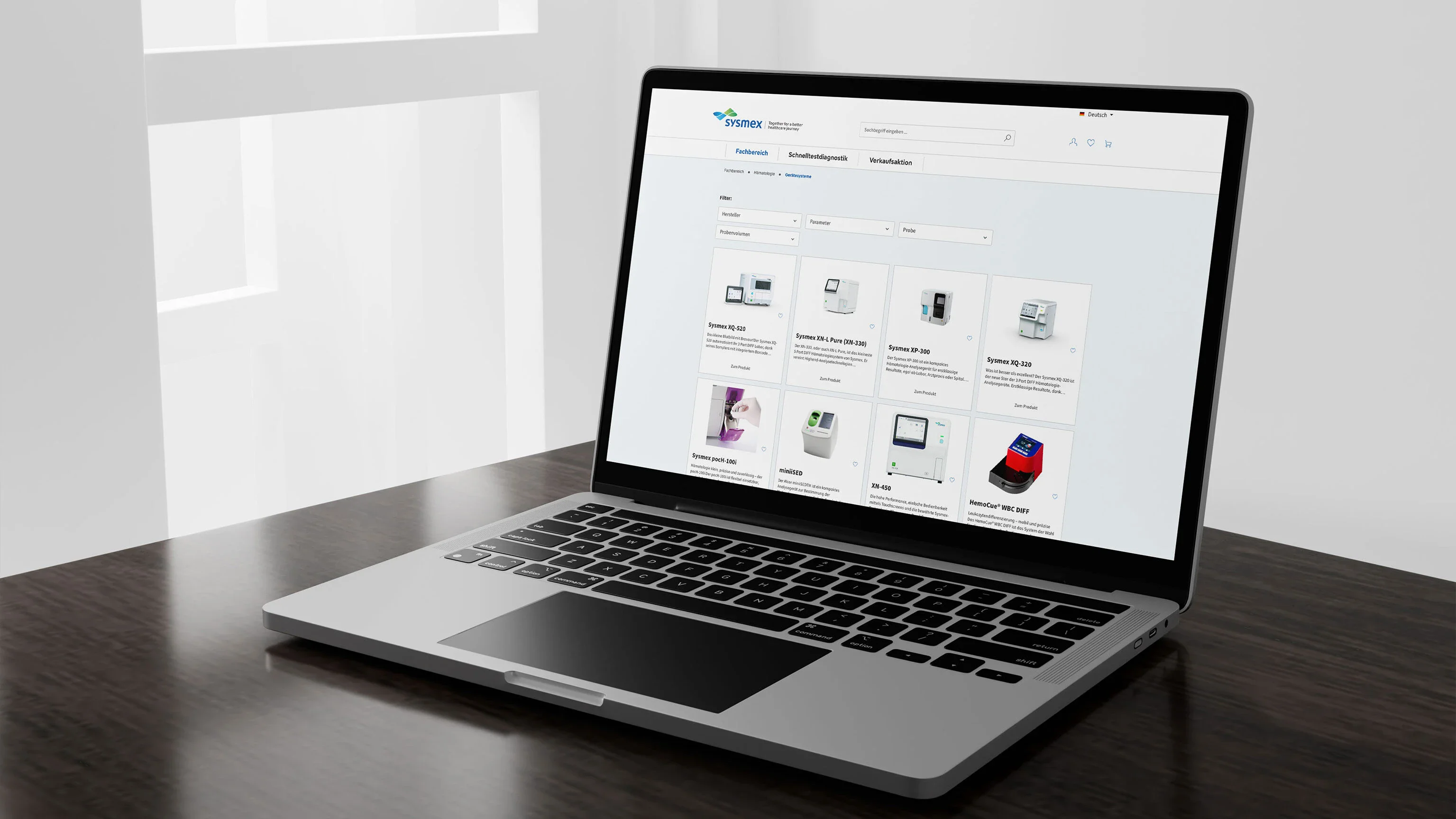Veolia Self-Service Portal
The Platform for Efficient Waste Management
- Headless commerce
- Shopware composable frontends
- Shopware beyond
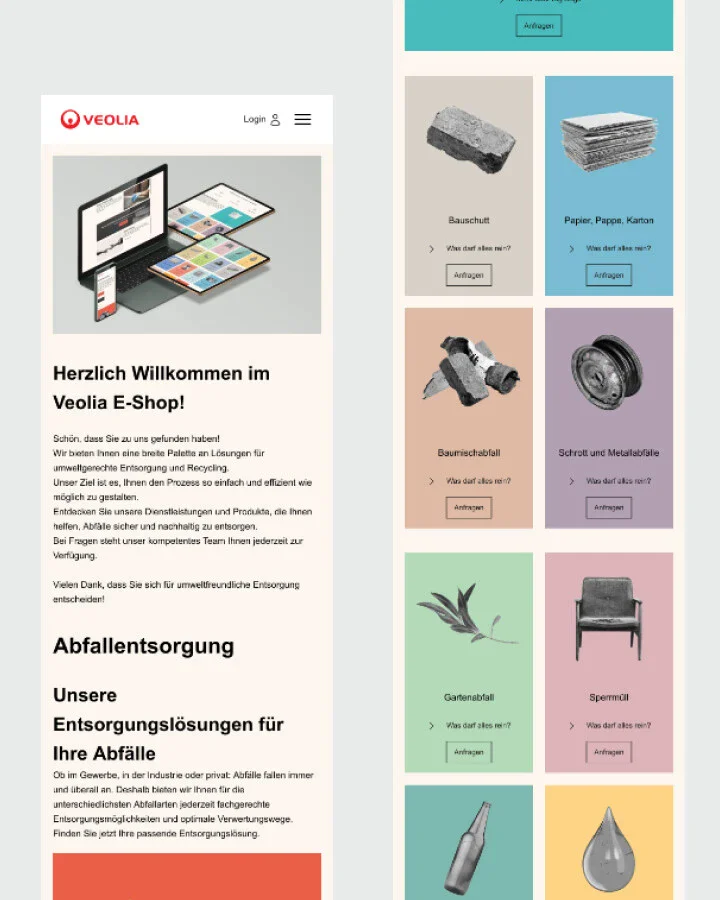
THE Top-Reference for large & complex Shopware
Projects.
Says Shopware.
We are proud to be part of the official keynote for the 25th anniversary of Shopware with our project self-service portal for our long-standing client Veolia!
"Unique project"
says Shopware.
"Headless Architecture", "Composable Frontends " and "B2B Components" are just some of the reasons why Shopware presented our project in the keynote for the anniversary.
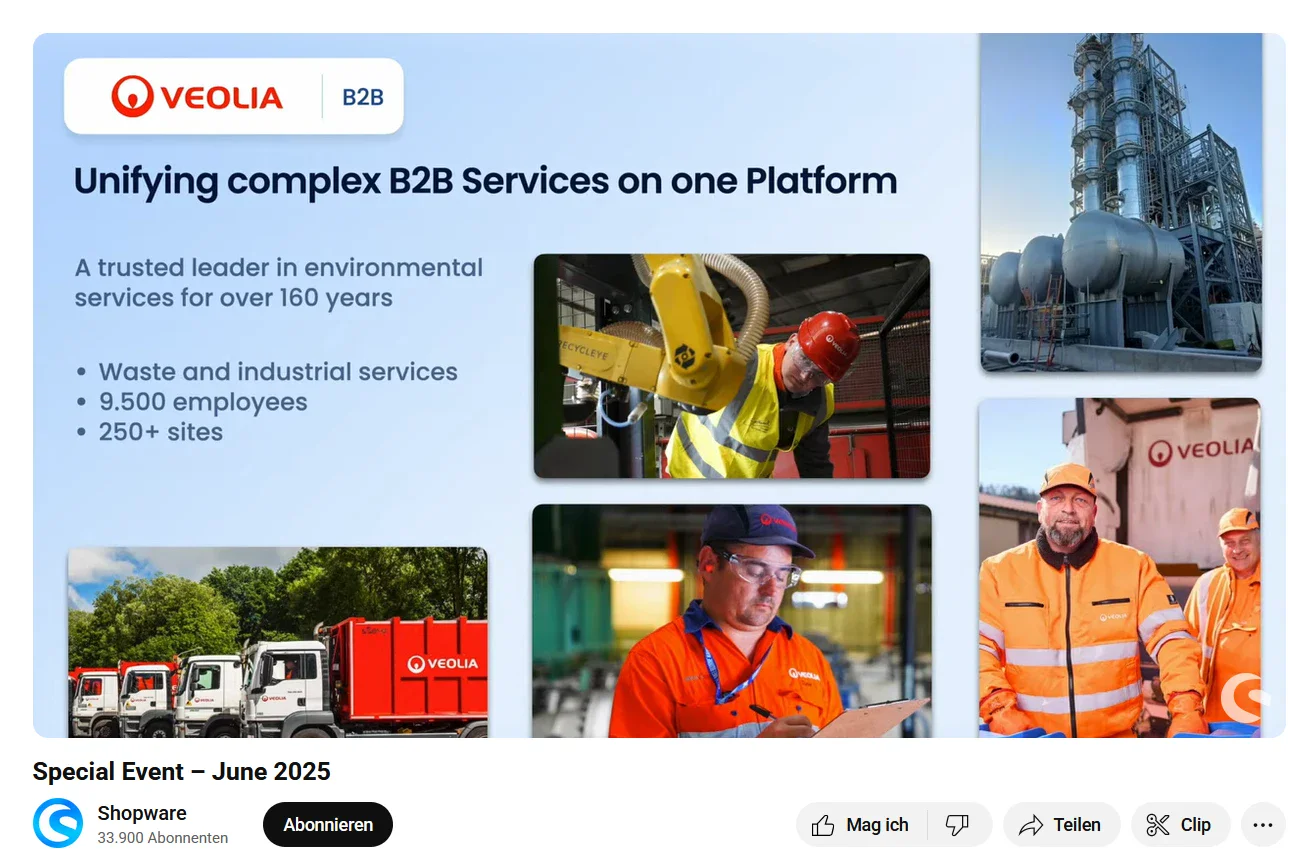
Our Project at a Glance
The company
Veolia Umweltservice GmbH, based in Hamburg, is responsible for Veolia's waste disposal business in Germany. With 9,500 employees and over 250 locations, the company offers comprehensive waste disposal and industrial services. Together with the Energy and Water divisions, Veolia generates sales of 2.8 billion euros in Germany and is part of Veolia's global business of 45.3 billion euros (2023).
The project
In recent years, the automation and digitalization of business processes has become increasingly important. As an experienced e-commerce agency, we migrated a powerful self-service portal based on Shopware 6 for our long-standing client Veolia. Back in 2018, we developed both the self-service portal and the new customer store for Veolia on Shopware 5.
The portal offers Veolia's customers a modern and efficient platform to handle business processes relating to the collection and delivery of containers and bins completely digitally. The portal also offers extensive administrative functions for end customers, such as viewing business contracts, managing transport orders and flexibly managing branch offices and user authorizations.
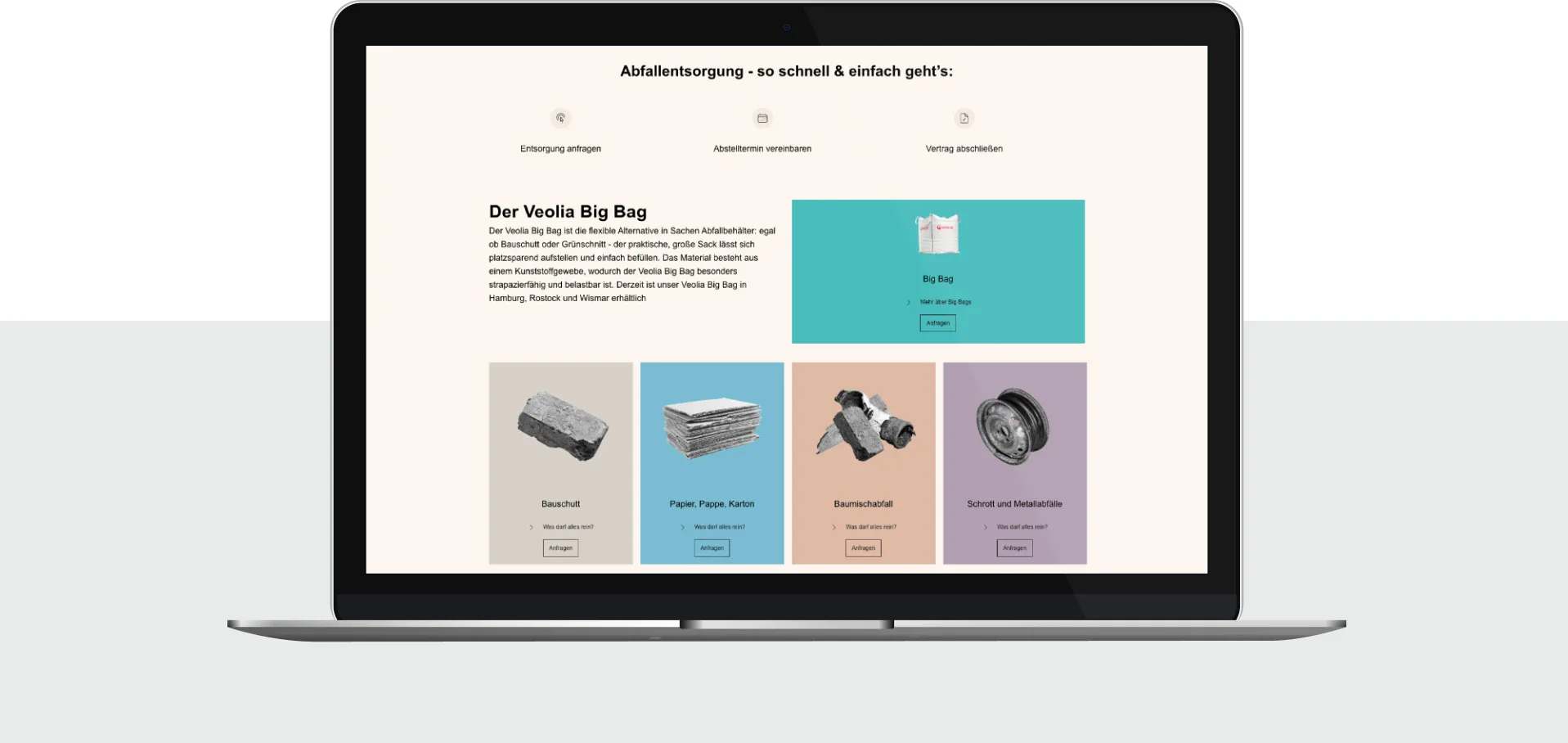

The collaboration with sitegeist was an absolute enrichment for our project, but also for me personally. All the gears really fitted together here and it is a collaboration at eye level. I was able to learn more from sitegeist in a very short space of time than would ever have been possible from any workshop.
Challenges and goals
With the migration to Shopware 6, Veolia pursued the goal of further digitizing and automating existing processes in order to reduce manual effort for both end customers and the company itself, in addition to the technological implementation based on one of the most modern e-commerce platforms. One of the key challenges was to ensure that the implementation of the complex and extensive B2B processes met all compliance and operational requirements due to the strictly regulated waste management industry. It was also necessary to ensure a smooth connection to Veolia's internal systems in order to optimize the continuous exchange of data.
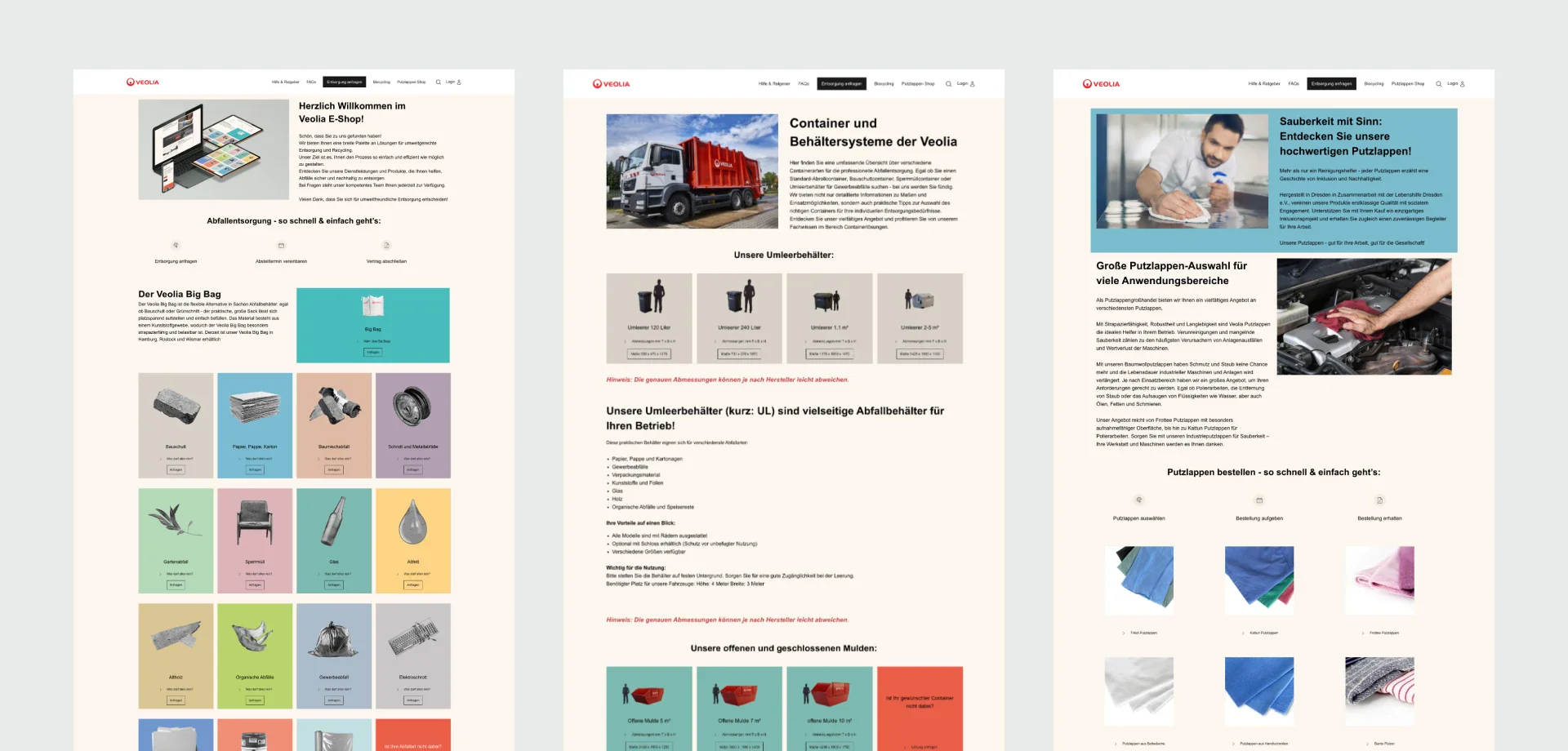
Highlights
Project overview & organization
- Project duration: 10 months from conception to go-live
- Project team: 5 developers and 1 project manager
- Target group: B2B and B2C customers
Functional highlights
- Dashboard with a quick overview of customers' current and planned pick-up dates
- Calendar function with status display and scheduling of customer orders
- Central management of employees and user rights
- Document management: save, manage and download contracts, orders and relevant documents in one place
- 24/7 disposal requests: simple request form accessible at any time
- One-click analytics & report generation
Technology & architecture
- Headless commerce architecture
- Use of Shopware Composable Frontends
- Shopware Beyond-Plan incl. B2B components
- Connection to the internal VeoliaBackend for smooth data synchronization
- Hosting on an autoscaling cloud infrastructure (Amazon Cloud)
Our solution approach
The project kicked off in November 2023 with strategic workshops defining the architecture and API needs. Based on these findings, we implemented a headless Shopware 6 setup and designed a composable frontend tailored to Veolia’s requirements.
The Shopware Beyond Plan gave full access to Shopware’s advanced feature set – particularly the B2B Components, which enabled custom access control and multi-user role assignments. We also developed sector-specific features compliant with German waste management regulations and ensured seamless backend integration for efficient data flow.
The headless architecture provided flexibility, improved development cycles, and allowed for rapid, custom feature delivery – significantly shortening time-to-market while enabling long-term scalability.
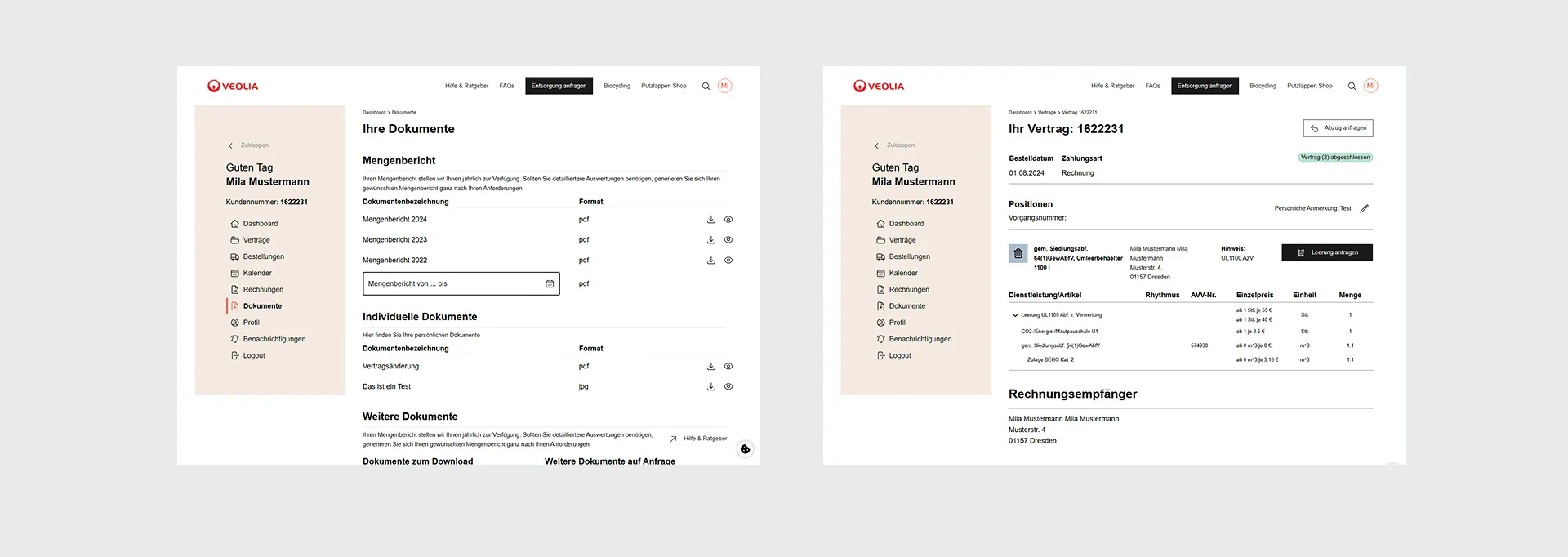
For the relaunch on Shopware, the headless architecture enabled a clear separation of Frontend and Backend. This decoupling gave the developers the necessary flexibility to implement a customized solution for Veolia's customers. The headless approach not only shortens the time-to-market, but also makes it possible to react more quickly to new requirements and implement individual adaptations efficiently.
By choosing the Shopware Beyond plan, the team had the complete toolset from Shopware at its disposal - ideal for tailoring the platform precisely to Veolia's specific market needs. A central element of this was the B2B Components, with which the portal was expanded to include essential B2B functionalities, such as the targeted management of user access and authorizations.
In addition, several internal systems were connected to the portal in order to digitize and centralize the processes to a greater extent. The migration not only significantly reduced the manual workload for customers and internal teams, but also noticeably increased added value and user-friendliness for customers.
Core features at a glance
24/7 online ordering:
Existing customers can now easily and quickly manage deliveries and collections of containers and bins online. This significantly reduces manual effort and speeds up the process.
Real-time notifications:
Just-in-time information about status changes via text message or email is particularly important for major customers, some of whom have several hundred locations where waste is regularly collected. The corresponding notifications can be individually configured by the customer in the portal.
Efficiency gains through digital administrative processes:
The portal provides a complete overview of all current and past orders. End customers can view business contracts and create individual annual and monthly overviews.
Individual access rights, centrally controlled:
A robust authorization system, based on B2B components, enables existing customers to create additional accesses to their company access and assign corresponding access rights individually.
Digital document management for a better overview and less effort:
Invoices and other important documents can be accessed digitally at any time, which increases transparency and further reduces administrative effort.
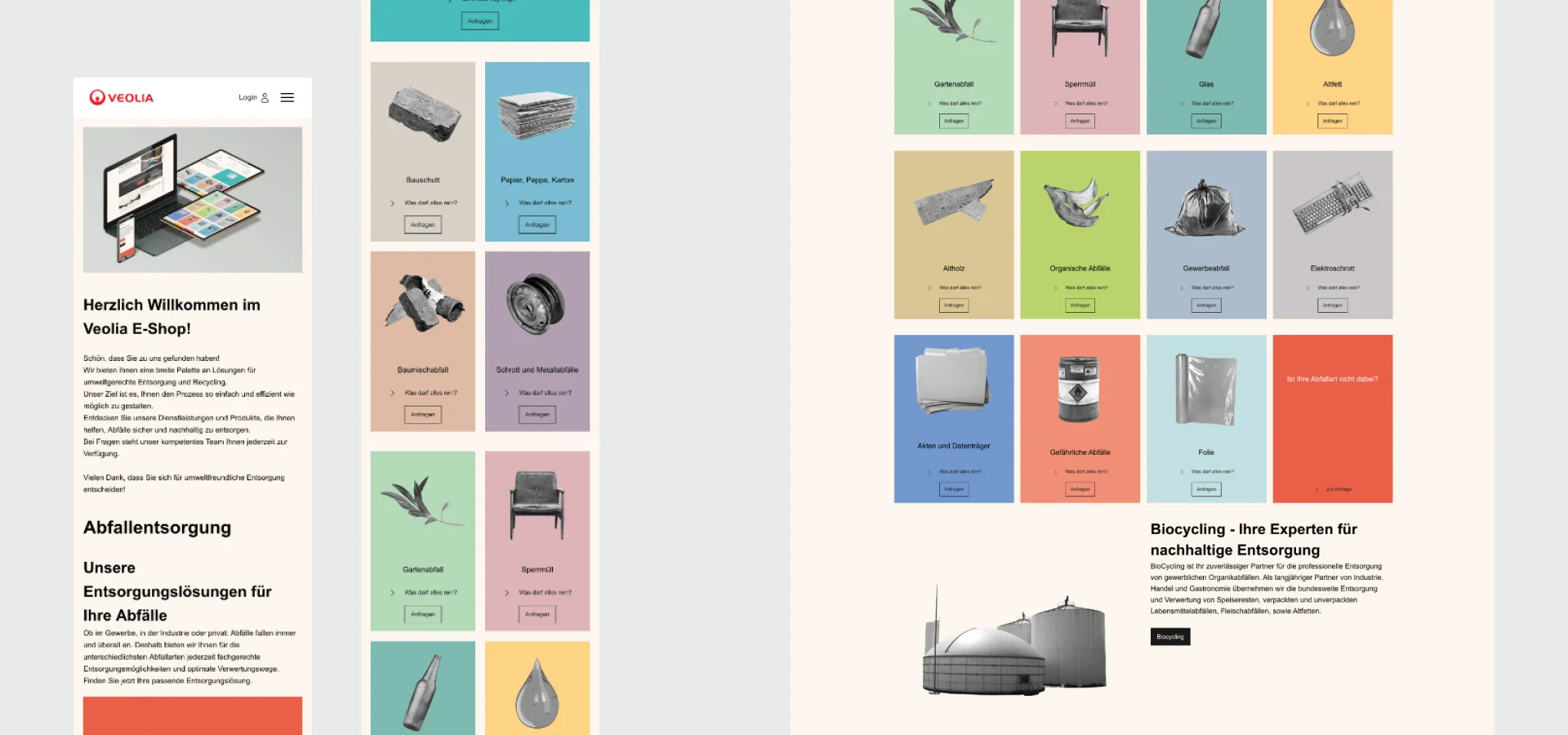
Results and benefits
By migrating to Shopware 6, Veolia was able to significantly advance the digitalization and automation of its business processes. End customers benefit from an even more user-friendly self-service portal that enables them to manage their orders, invoices and contracts efficiently.
Functions such as the automatic notification system by e-mail or SMS when the status of transport orders changes increase customer satisfaction and the efficiency of operational processes. Thanks to the new solution, Veolia has been able to significantly reduce its administrative workload and increase customer satisfaction.
The investment in Shopware 6 has proven to be a valuable step towards meeting the growing requirements in the B2B sector and at the same time creating the basis for further digitalization and optimization.
Outlook
The successful migration of the self-service portal to Shopware 6 underlines our expertise and experience in the implementation of complex e-commerce projects in the B2B sector.
With customized solutions and a deep understanding of our customers' specific requirements, we help companies like Veolia to continuously improve their digital business processes and ensure long-term success.
In the coming project phases, the platform will be continuously expanded and additional processes will be digitized. The next major milestone will be the implementation of a new customer store - supplemented by the integration of additional stores for specialized products.


